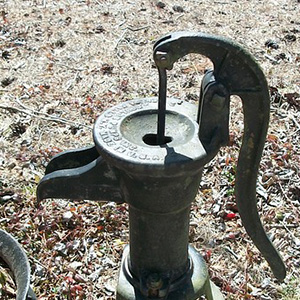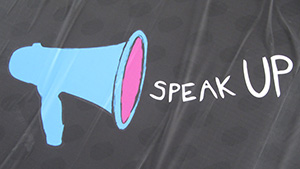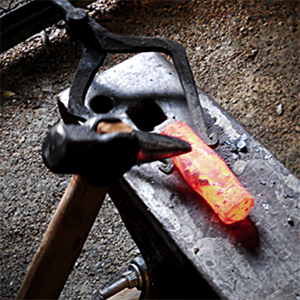 Proverbs 30
Proverbs 30
Author: Randy Wiseman
The sweet, life-giving water stopped flowing at our house this week. The diagnosis? The filter needs to be replaced. Ah, an easy and cheap fix! No, the pressure tank is filling very slowly, there must be another problem. The control valve going into the house needs to be replaced. Yikes! My internal calculator starts to add up the costs. The valve was replaced-still, no pressure. “We better pull the pump,” the words I didn’t want to hear. Sure enough, the pump needed to be replaced. I thought of Tevye in The Fiddler on the Roof pulling his milk cart through the streets of Anatevka because his horse went lame, singing, “Lord you decreed I should be what I am. Would it spoil some vast eternal plan if I were a wealthy man?”
Today we read Proverbs 30, which are the words of Agur, not of King Solomon. And although we don’t know anything else about him, his message in verses 7-9 remind us to recognize our daily dependence on God.
7 “Two things I ask of you, Lord;
do not refuse me before I die:
8 Keep falsehood and lies far from me;
give me neither poverty nor riches,
but give me only my daily bread.
9 Otherwise, I may have too much and disown you
and say, ‘Who is the Lord?’
Or I may become poor and steal,
and so dishonor the name of my God.
These verses remind me of one of my favorite passages, when Moses instructs the Israelites in Deut. 8:10-18. 10 When you have eaten and are satisfied, praise the Lord your God for the good land he has given you. 11 Be careful that you do not forget the Lord your God, failing to observe his commands, his laws and his decrees that I am giving you this day. 12 Otherwise, when you eat and are satisfied, when you build fine houses and settle down, 13 and when your herds and flocks grow large and your silver and gold increase and all you have is multiplied, 14 then your heart will become proud and you will forget the Lord your God, who brought you out of Egypt, out of the land of slavery. 15 He led you through the vast and dreadful wilderness, that thirsty and waterless land, with its venomous snakes and scorpions. He brought you water out of hard rock. 16 He gave you manna to eat in the wilderness, something your ancestors had never known, to humble and test you so that in the end it might go well with you. 17 You may say to yourself, “My power and the strength of my hands have produced this wealth for me.” 18 But remember the Lord your God, for it is he who gives you the ability to produce wealth, and so confirms his covenant, which he swore to your ancestors, as it is today.
Rebecca and I have often used this passage to teach our children that God is the one that gave you the abilities you have. It is from the gift of those abilities that you are able to make good grades or excel at a sport. I’ve also told them God blessed me with the skills I have and gave me the ability to hold my job. Therefore all our money and all our possessions came directly as a blessing from Him.
So as I was presented with the bill for the new pump did I say, “Thank you Father for blessing me with trouble so I may not have too much and disown you and say, Who is the LORD?” Not quite. But it was again a moment to reflect on God’s great blessings in my life. I am thankful. Thankful the pump lasted the first 14 years we lived in this house. Thankful I am employed. Thankful for running water. Thankful for Townsend Pump Service. Today, let’s be thankful for our daily bread and remember to praise God for his abundant blessings in our lives.









